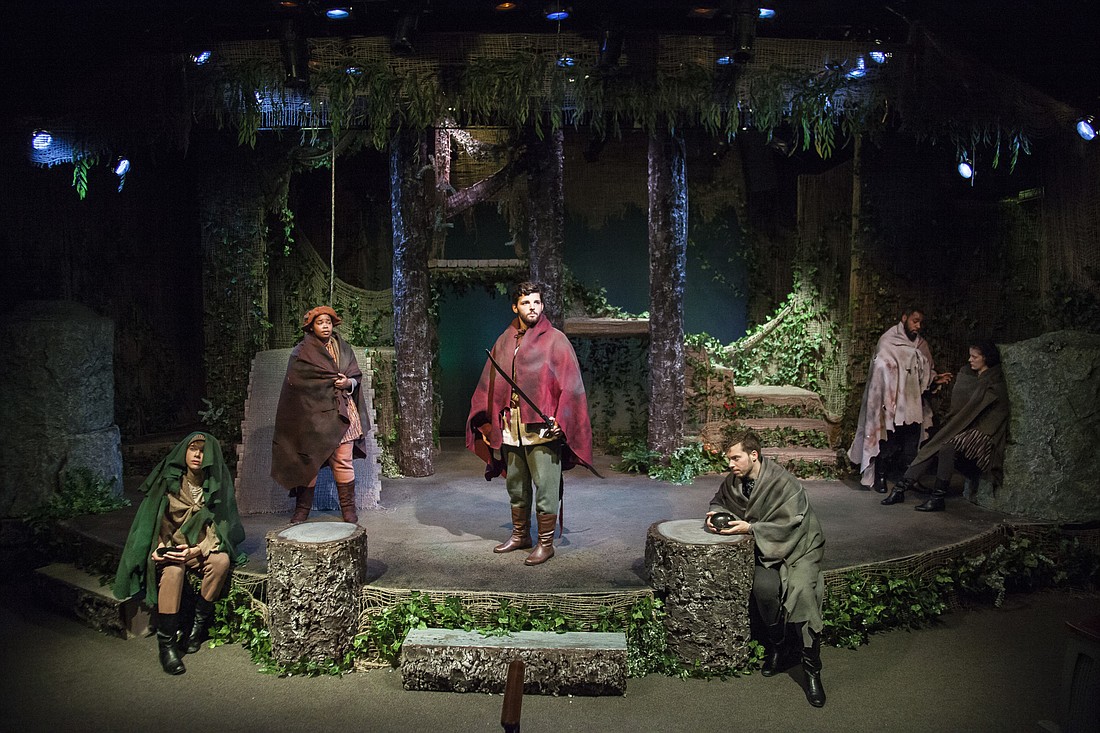- July 9, 2025
-
-
Loading

Loading

It takes a lot of work to hold a youngster’s attention.
They’re often hard to please, don’t enjoy sitting still and will let you know right away if they’re bored.
That’s why the Florida Studio Theatre Childrens Theatre keeps its shows short, funny and most importantly, interactive.
FST is kicking off the season with an action-packed children’s production of “Robin Hood” by Greg Banks. In this new take on a classic tale, kids learn about right and wrong as they join Robin Hood on a journey through Sherwood Forest that’s filled with trickery, drama and a little romance.
FST Director of Children’s Theatre Caroline Kaiser says she chose “Robin Hood” as the season opener because she thought it had all of the elements necessary to excite their audience, and it’s a story people know and love.
“There’s swashbuckling sword fights and a clear good guy and a clear bad guy,” she says. “I just felt like it had the perfect combination of heroism and bravery combined with humor and levity.”
The young cast of six is made up of actors from the FST acting apprentice company, and all but J Vance (Robin Hood) play multiple characters. They auditioned, were chosen for the role and began rehearsals all within a couple weeks in August. They were then given three weeks of rehearsal to prepare for the Oct. 7 opening.
“Robin Hood’ is the play that sets the example for the Write A Play series in which local students are encouraged to submit a work to the FST Young Playwrights Festival.
Kaiser says all children can get something out of the show, and one thing they all have in common is their observant nature.
“There’s no smoke and mirrors that will fool a child,” she says. “They know truth on stage.”
One way the “Robin Hood” actors engage kids is through a call-and-response tactic. Before Robin Hood tricks the sheriff for the first time, the audience is told to yell “Long Live Robin Hood!” once it’s evident that the sheriff has been bamboozled.
This kickstarts the youngsters’ enthusiasm and helps them understand it better. Suddenly they too play a role in the production and are thus more invested in its outcome.
Because FST’s Keating Theatre is small, Kaiser says the experience is more intimate and children grasp the message easier.
“Not only are they being entertained, they’re flexing those empathy muscles,” Kaiser says. “We need more empathetic humans, and the theater, to me, is the place where you can go and build those skills.”
Whenever the kids are cheering the hero or booing the villain, she says that’s empathizing. She’s even seen kids empathize with the villain because they don’t like seeing anyone sad.
Kaiser says there are two types of storytelling going on in “Robin Hood” — visual and mental. Kindergartners see the sword fights and learn who’s good and bad, and fifth-graders get the jokes that go over a younger child’s head.
Those jokes are also amusing to the adults who attend, which is Kaiser’s goal: to put on shows that a whole family can enjoy together.
Before Saturday morning shows, families can partake in an educational craft. On opening weekend, youngsters made masks and learned the definition of “disguise” and “camouflage,” which are words used in the production.
It’s quality time spent together doing activities like this that attracts many families to the children’s theatre, Kaiser says.
“Parents have less and less time, so if they’re choosing to spend their time with us, I want it to be meaningful,” she says.